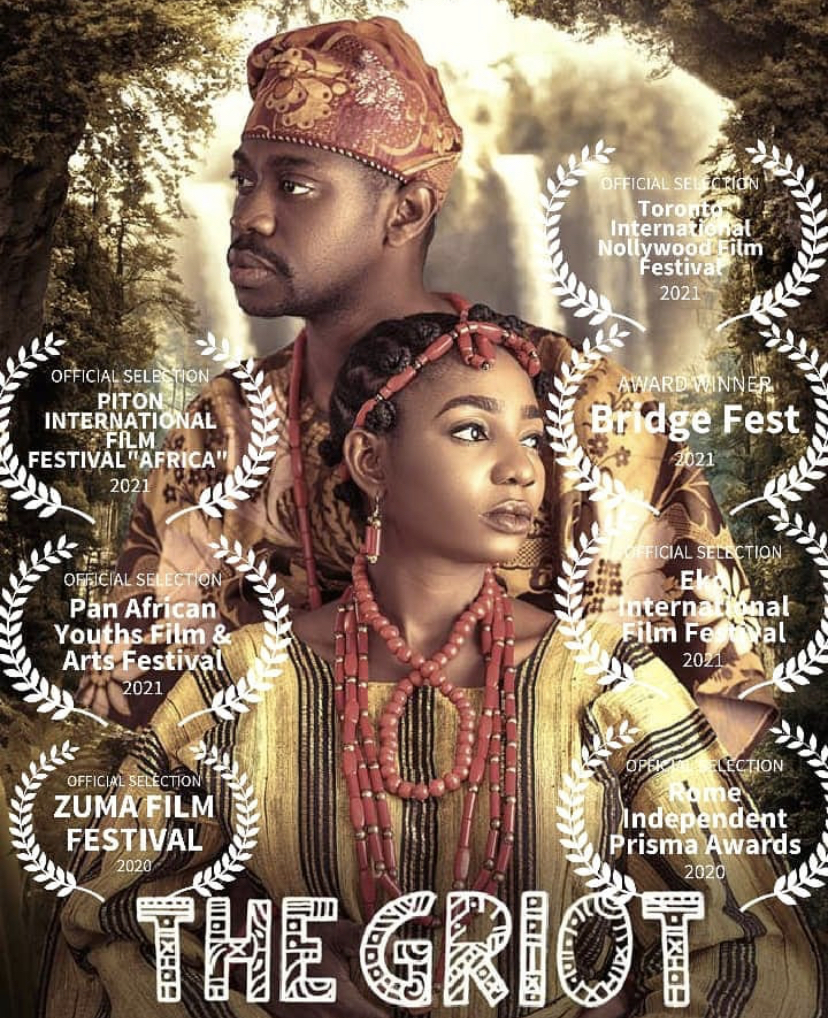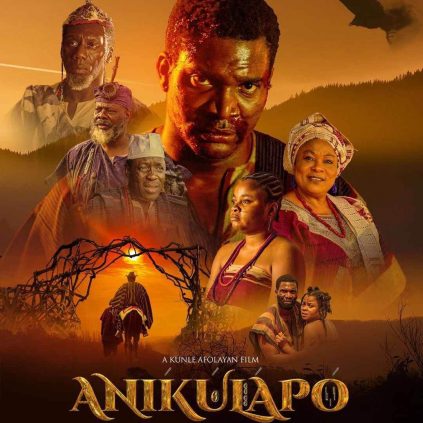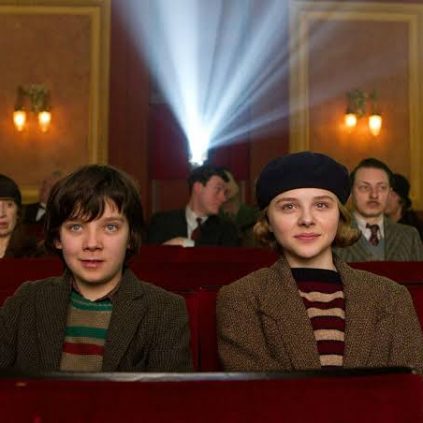The Griot is the latest instalment in a year has delivered in the category of Yoruba indigenous films, including films like King Of Thieves, Anikulapo and most recently, The King’s Horseman, three movies that received shouts for an Oscar nomination that were apparently not loud enough for the Nigerian Oscar Selection Committee. It will be a disservice, however, to compare Adeoluwa Ade’s The Griot to these movies, and not just because it is a significantly smaller production.
The Griot makes no mistakes about its ambitions. It is not made with such lofty ideas as the Oscars in mind, or to be a cultural and/or cinematographic game changer for Nollywood. To fail to acknowledge this will lead to a skewing of expectations against the film. What it does attempt to be, a 90 minute flick designed to keep you entertained for that period, and even give you a lesson or two to take home, it mostly succeeds at.
“Griot” is a uniquely West African word, used in a time before books gained adoption to describe the people who served in its absence as a repository of knowledge, which they pass on by poetry, singing, or storytelling. It is the last of these that features so importantly in the film.
Lakunle (Lateef Adedimeji) is a brilliant storyteller, or perhaps, ‘story writer’ will suffice, for he lacks he courage to actually tell them, being shy nearly to the point of selective mutism. His friend, Sanmi (Temilolu Fosudo) is probably the worst friend to ever bear the title, but being a much more affable and confident person, comes to Lakunle for stories which he then narrates publicly with no credit given to the author.
Lakunle has no problems with this arrangement initially, not even when Sanmi uses his fraudulent talent as a claim to fame and secures a chieftaincy title from the king who absolutely loved his stories. But then in comes the beautiful Tiwa, a singer who is admired by both friends. Lakunle is immediately an underdog in this fight because first, his competitor happens to be a titled chief and second, he is too shy to convey his emotions. None of these turn out to matter though, because Tiwa chooses him and despises Sanmi. This should mean a quick ending and a happy one at that, except Sanmi will fight to the end for Tiwa and for his newfound status in the land. For Lakunle to claim what is rightly his, he will have to overcome his timidity and discover his voice.
The Griot shines in its storyline. It is simple and predictable (up until the very end), but that does not make it any less interesting. But it is not without blemishes, especially relating to the roles of certain side characters. The entourage of Ade’s friends and the horde of women in their company are never given any important material to work with. They exist as caricature characters, remaining in the fringes and never a factor in any part of the story. None of these would be a problem if they were used to good comedic effect as seemingly intended, but what we get is unrealised potential.
The much bigger gaffe in story, however, happens in the last few minutes in what must have been envisioned would be a twist that would be appreciated for how it subverts predictably. It actually falls wide off this mark and comes out like an effort to make a shocking ending just for the sake of it. There is only so much that can be said without constituting a spoiler, so you must judge for yourself if the final scene was truly necessary.
Lacking the budget to bring high quality cinematography to life, The Griot’s success will balance firmly on the shoulders of the film aspects not tied to a budget, like its acting, direction and story. The last of these is already spoken for, but the acting is another aspect where The Griot excels, especially with its three main actors.
Lateef Adedimeji does a fantastic job as the tongue tied Lakunle. You see and feel the frustration in his face when words fail him, and he conveys his love for Tiwa passionately enough, even though his bashfulness can descend into effeminacy on occasion.
Temilolu Fosudo does an even better job as Sanmi. It is said a good actor makes you hate him as much as the villain he portrays, and Temilolu does just that. Even more, his charismatic performance fits into Sanmi’s cockiness perfectly, especially after he is elevated by the king to the position of Gbobaniyi.
Goodness Emmanuel, the female lead and co-producer is in fine form as Tiwa, while Funso Adeolu puts in a decent shift as Oba Adejare.
For the culture and time in which it is set, a matching soundtrack would have helped in properly immersing the audience into the fictional world. In its absence, it is a little more difficult to remain grounded in the movie, and this is made worse by costuming and props departments admixing modern items and clothing into the supposedly vintage setting, and constituting a distraction to the film in doing so. All things considered, however, The Griot is a net positive, a simple production on a low budget that succeeds for its talented actors and a charming story











